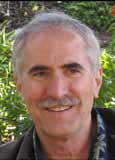From the Chair

Larry Woolf
At this time of year, FEd activities are plentiful. Chandralekha Singh, our energetic FEd Chair-Elect is chairing the FEd Program Committee, which is putting together a diverse set of invited sessions for the 2011 March and April Meetings (which this year are, for the most part, actually in March and April). Renee Diehl, FEd Vice-Chair and chair of the Nominating Committee, is working with her team to garner a highly qualified set of candidates for the open FEd Executive Committee positions. For the upcoming election, those positions include Vice-Chair, APS At-Large, APS/AAPT At-Large, and Secretary/Treasurer. You should expect to see a ballot in the near future.
Chandralekha Singh is also co-editor of this newsletter, along with Enrique Galvez. Thanks to both for their efforts in creating this newsletter, which includes many interesting articles on topics from the 2010 Gordon Conference on Physics Research and Education. I'd also like to acknowledge the Teacher Preparation Section editor, John Stewart, as well as Carl Mungan for his Browsing the Journals and Web Watch contributions.
The objective of the Forum on Education is to provide an arena to discuss “the advancement and diffusion of knowledge regarding the inter-relation of physics, physicists and education.” In the rest of this article, I'd like to suggest some topics that seem worthy of discussion – and ultimately advancement and diffusion – from my perspective as an industrial physicist for nearly 30 years. These ideas are mine and do not necessarily represent those of the FEd or the APS in any way. Most of these issues have not been generally discussed in the FEd newsletters.
I'd like to discuss my perspective on job skills that are critical for success in industry and the related issues of how we can best prepare physics students for careers in industry, since most physics graduates will not have academic careers. I think useful skills can be broadly classified into 4 areas:- Specific deep content knowledge in the core areas of physics
- Broad awareness of a wide range of topics in physics, other sciences, engineering, manufacturing, quality assurance, intellectual property, and program management
- Skills for solving both well defined and ill-defined problems, generating new ideas/innovating, experimental design to model and test those ideas, data analysis and documentation, and written and verbal communication, including proposals, papers, and presentations.
- Ability for lifelong learning. While learning tends to exclusively utilize the professor/student format in classrooms, such a structure is rare after graduation. Students need to be able to transition from a structured classroom learning environment to a non-structured environment.
If these ideas are valid, then how can both graduate and undergraduate physics programs be structured to optimize the preparation of graduates for their future careers? A related topic of how to best prepare K-12 students for their post-high school trajectories led to the development of the Benchmarks for Science Literacy and the National Science Education Standards. Both sets of standards were a consensus, developed and reviewed by experts and stakeholders.
By analogy, should there also be some sort of standards/ learning goals/ guidelines/best practices that assist physics departments in determining what their graduating students should know and be able to do? Would it be best to do this at a national level, to minimize the efforts of resource-limited physics departments and professors? If so, what is the best way to develop these standards? Can they be developed in a scientific manner? Should there also be standards/learning goals for what students should know and be able to do for each physics class?
These types of learning goals are part of at least one science education initiative (Ref. 1), but it is not clear if this initiative has been broadly considered or adopted. In order to generate standards/learning goals that prepare students for future careers, there also must be continuous communication and feedback between those that provide the physics education and those that utilize the results of that education. Is there appropriate communication and feedback between physics departments and those that hire their graduates? If so, how is it being accomplished, what is the impact, and how it is being assessed?
Ensuring that the physics education is relevant and of the highest quality is in the best interest of the student, professor, department, college or university, industry, and ultimately the nation, as our national competitiveness and standard of living result from our ability to lead in innovation and productivity, much of it derived from the work of physicists.
I welcome your thoughts on these issues. Please consider writing a letter to the editor or an article about this topic for the newsletter.
Reference 1: Learning Goals Resources, Carl Weiman Science Education Initiative; http://www.cwsei.ubc.ca/resources/learn_goals.htm
Larry Woolf is principal optical scientist and senior program manager at General Atomics, where he has been active in education activities since 1992, mostly focused on K - 12 science.
Disclaimer- The articles and opinion pieces found in this issue of the APS Forum on Education Newsletter are not peer refereed and represent solely the views of the authors and not necessarily the views of the APS.
